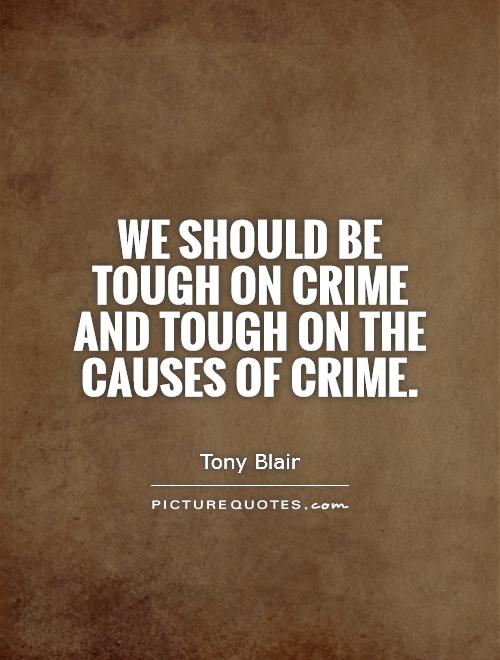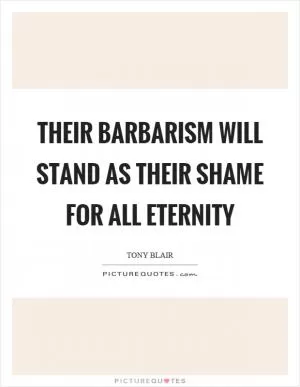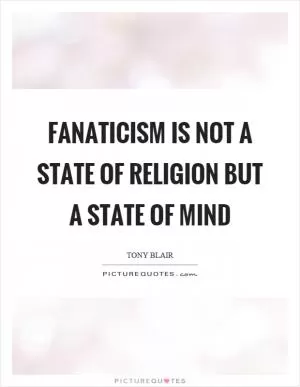We should be tough on crime and tough on the causes of crime

We should be tough on crime and tough on the causes of crime
Tony Blair, the former Prime Minister of the United Kingdom, famously coined the phrase "tough on crime, tough on the causes of crime" as a key pillar of his government's approach to tackling criminal activity. This mantra encapsulates the idea that in order to effectively combat crime, it is necessary to not only punish offenders but also address the underlying social, economic, and environmental factors that contribute to criminal behavior.Blair's emphasis on being tough on crime reflects a commitment to holding individuals accountable for their actions and ensuring that justice is served. This includes implementing stricter sentencing guidelines, increasing police presence in high-crime areas, and cracking down on organized crime networks. By taking a hardline stance on criminal activity, Blair sought to send a clear message that lawlessness would not be tolerated in society.
However, Blair also recognized that simply punishing offenders is not enough to prevent crime from occurring in the first place. In order to truly address the root causes of criminal behavior, it is essential to invest in social programs that aim to address issues such as poverty, unemployment, lack of education, and substance abuse. By addressing these underlying factors, Blair believed that it would be possible to reduce the likelihood of individuals turning to crime as a means of survival or as a result of desperation.
Blair's approach to crime prevention was based on the idea that a holistic approach is needed in order to effectively combat criminal activity. By being tough on crime and tough on the causes of crime, Blair sought to create a safer and more just society for all citizens. While his policies were not without controversy, his commitment to addressing both the symptoms and root causes of criminal behavior remains a relevant and important aspect of criminal justice reform efforts today.












 Friendship Quotes
Friendship Quotes Love Quotes
Love Quotes Life Quotes
Life Quotes Funny Quotes
Funny Quotes Motivational Quotes
Motivational Quotes Inspirational Quotes
Inspirational Quotes